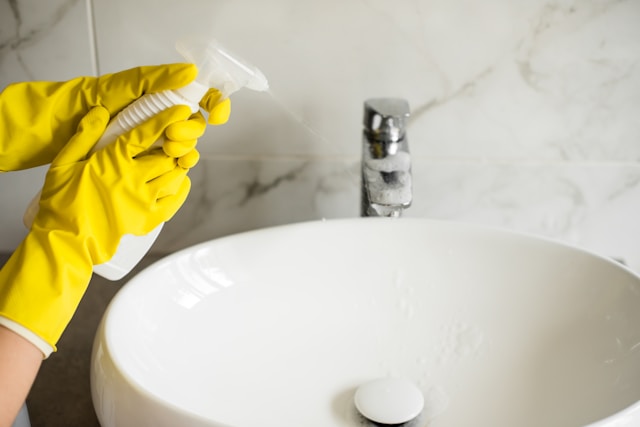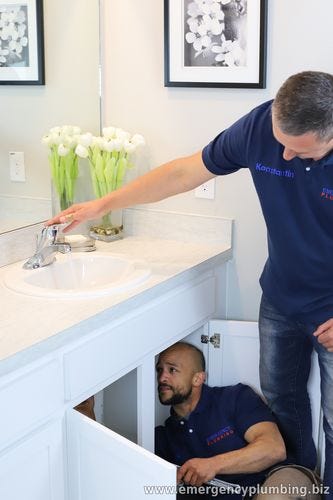How do you actually feel in regards to Smart Plumbing Tips for New Homeowners?

For new house owners, understanding and preserving shower room pipes can save both money and time by preventing costly problems down the line. Below are some necessary shower room pipes suggestions to aid you maintain every little thing running efficiently.
Prepare for Winter
Shield your pipes from freezing during cold weather by shielding pipes in unheated areas like cellars, attics, and garages. Throughout severe cold, let cold water drip from faucets served by exposed pipes to aid prevent cold.
Set Up Routine Upkeep
Take into consideration organizing yearly examinations with a qualified plumber. They can find problems that you could miss, such as surprise leaks or damage on pipes and components. Routine maintenance helps extend the life of your plumbing system and can stop emergencies.
Acquaint Yourself with the Main Shut-Off Shutoff
Understanding where the main water shut-off shutoff lies in your home is vital. This allows you to swiftly switch off the supply of water in case of major leakages or throughout pipes emergencies, avoiding extensive water damage.
Frequently Inspect for Leakages
Tiny leakages can lead to big issues. Consistently inspect under sinks, around commodes, and near plumbing components for any kind of signs of leakages. Look for wetness, tiny drips, or rust. Catching and repairing leakages early can avoid a lot more major damage and conserve water.
Preserve Your Hot Water Heater
Ensure your hot water heater is set to an appropriate temperature (typically around 120 degrees Fahrenheit) to prevent scalding and lower energy usage. Flush the storage tank yearly to remove debris buildup, which can minimize the performance and life-span of your heating unit.
Update Your Fixtures
If your home has older fixtures, take into consideration upgrading to more efficient models. Modern bathrooms, showerheads, and taps are created to utilize much less water while offering excellent pressure, which can dramatically lower your water costs and ecological impact.
Be Cautious with DIY Plumbing Fixes
While it's appealing to manage all home fixings by yourself, be cautious with pipes. Some issues could require expert know-how, specifically if they include major water lines or sewage system repair work. Working with a specialist can in some cases be extra cost-effective than DIY, particularly if it protects against further damages.
Do Not Overlook Slow Drains Pipes
If your sink or tub is draining pipes gradually, it's often an indicator of an obstruction forming. Addressing this early can avoid a complete blockage. Make use of a bettor or a plumber's serpent to clean out debris. Stay clear of utilizing chemical drainpipe cleansers as they can damage your pipes with time.
Know What Not to Flush
Toilets are not waste disposal unit. Avoid flushing anything besides toilet tissue and human waste. Products like wipes, feminine health items, and cotton swabs need to be dealt with in the garbage to prevent clogs and sewage system back-ups.
Mount Strainers in Drains
Place filters in your sink and tub drains pipes to capture hair and other particles prior to they enter your pipes system. Cleaning the filters frequently will aid avoid build-up and maintain water moving openly.
Conclusion
Comprehending and preserving your home's shower room pipes can protect against several common issues. By following these essential tips, you can ensure your bathroom continues to be useful and reliable, conserving you money and time in the future.
Essential Plumbing Tips for Homeowners: Keep Your Pipes Flowing Smoothly
As a homeowner, understanding the basics of your plumbing system can save you time, money, and a lot of headaches. Plumbing issues can range from minor annoyances like dripping faucets to major problems like burst pipes that cause significant damage. This guide provides essential tips to help you maintain your plumbing system and tackle common issues.
Understanding Your Plumbing System
Supply System: Brings fresh water into your home from a municipal source or a well. Drain-Waste-Vent System: Removes wastewater and vents sewer gases outside. Fixtures and Appliances: Includes sinks, toilets, showers, dishwashers, and washing machines. Basic Maintenance Tips
Regular Inspections: Periodically check for leaks, corrosion, and other signs of wear and tear. Look under sinks, around toilets, and near water heaters. Know Your Main Shut-Off Valve: In case of a major leak, you’ll need to shut off the water quickly. Ensure everyone in your household knows where the main shut-off valve is located. Prevent Frozen Pipes: In cold climates, insulate exposed pipes and let faucets drip during extreme cold to prevent freezing. Use Strainers: Install strainers in sinks and tubs to catch hair, food particles, and other debris that can cause clogs. Common Plumbing Issues and Solutions
Clogged Drains:
Prevention: Avoid pouring grease down the drain and use drain screens to catch debris. DIY Fix: Use a plunger or a plumbing snake to clear minor clogs. For stubborn clogs, a mixture of baking soda and vinegar can sometimes help. Leaky Faucets:
Prevention: Replace washers and seals regularly. DIY Fix: Turn off the water supply, disassemble the faucet, and replace worn parts.

Call Today